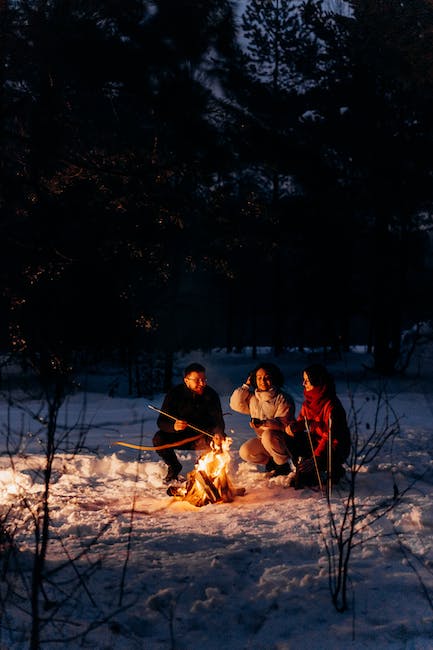With the onset of colder temperatures in many parts of the world, summer may be fading away, but is winter the remedy to ending the pesky mosquito invasion? Many people wonder if lower temperatures really do bring an end to the presence of mosquitoes and what other factors might contribute. In this article, we’ll explore the answer to this question and look into the various ways that winter can help keep mosquitoes at bay.
Effects of Cold Weather on Mosquitoes
Winter Temperature Temp
Winter temperatures can make it much harder for mosquitoes to survive. As the temperatures drop near or below freezing, adult mosquitoes are not able to survive, even in sheltered areas. While the cold does play a role in their death, it’s important to note that most mosquitoes that remain active during winter are already in the larval or pupal stages and will not be affected until the weather warms up again.
Reduce Numbers of Mosquitoes
In areas with warmer temperatures, cold weather can still make it harder for mosquitoes to thrive. When temps drop to the low 50s (Fahrenheit) and below, adult mosquito numbers reduce significantly depending on the breadth and duration of the cold weather. However, more resilient species of mosquitoes have the ability to survive in colder areas and can have longer lifespans if they are located in sheltered areas like forests.
Breeding Grounds
When temperatures drop, the water sources where mosquitoes breed shrink due to the water freezing over. While this is only a temporary fix in areas with a mild winter, in more frigid climates, prolonged freezing can prevent the larvae from hatching and bring the population down.
Other Factors That Affect Mosquito Populations
Humidity
Humidity levels also play a role in how well mosquitoes can survive in cold weather. If the air is too dry and the temperature reaches the freezing point, unfrozen water droplets can form on the mosquitoes’ bodies and cause them to freeze due to dehydration. In these cases, even if the climate isn’t too cold, reduced humidity levels can result in a decrease in the mosquito population.
Elevation
Another factor to consider is a region’s elevation. In general, higher elevations tend to have lower temperatures than lower elevations. A region’s elevation can also affect moisture levels, as at higher elevations, air is drier and can dry out any places of standing water where mosquitoes breed.
Larvicide Treatments
In areas where mosquitoes are more prevalent, larvicide treatments are often used to reduce the number of mosquitoes by eliminating the larvae in their breeding grounds. This is effective in reducing the presence of mosquitoes in the spring and summer months, but it is not a long-term solution and will not protect against certain species of mosquitoes which survive the winter in their larval and pupal stages.
People Also Ask Questions:
How does winter affect mosquitoes?
Winter temperatures can make it much harder for mosquitoes to survive and reduce their numbers significantly, especially when the temperatures go below 50 degrees (Fahrenheit). Furthermore, when temperatures drop, the water sources where mosquitoes breed shrink due to the water freezing over, preventing the larvae from hatching.
Do mosquitoes die in winter?
Mosquitoes native to colder climates have adapted to survive the winter season in their larval or pupal stages. If temperatures drop near or below freezing, adult mosquitoes are not able to survive.
What temperature kills mosquitoes?
Mosquitoes cannot survive when the temperature reaches near or below freezing. Therefore, temperatures below 32 degrees (Fahrenheit) can be lethal for adult mosquitoes.
Can mosquitoes survive in low temperatures?
Resilient species of mosquitoes have the ability to survive in colder temperatures. However, their populations are generally lower than in warmer climates.
Do mosquito repellents work in winter?
Mosquito repellents do work in winter, however, mosquito populations are generally much lower in winter, making it less necessary to use mosquito repellent.
Final Words
While colder temperatures can help reduce the number of mosquitoes, it is important to also consider other factors like humidity, elevation and larvicide treatments. By taking all of these into account and understanding how they can affect mosquito populations, people can take the necessary precautions in order to keep their communities safe from the nuisance of mosquitoes.

